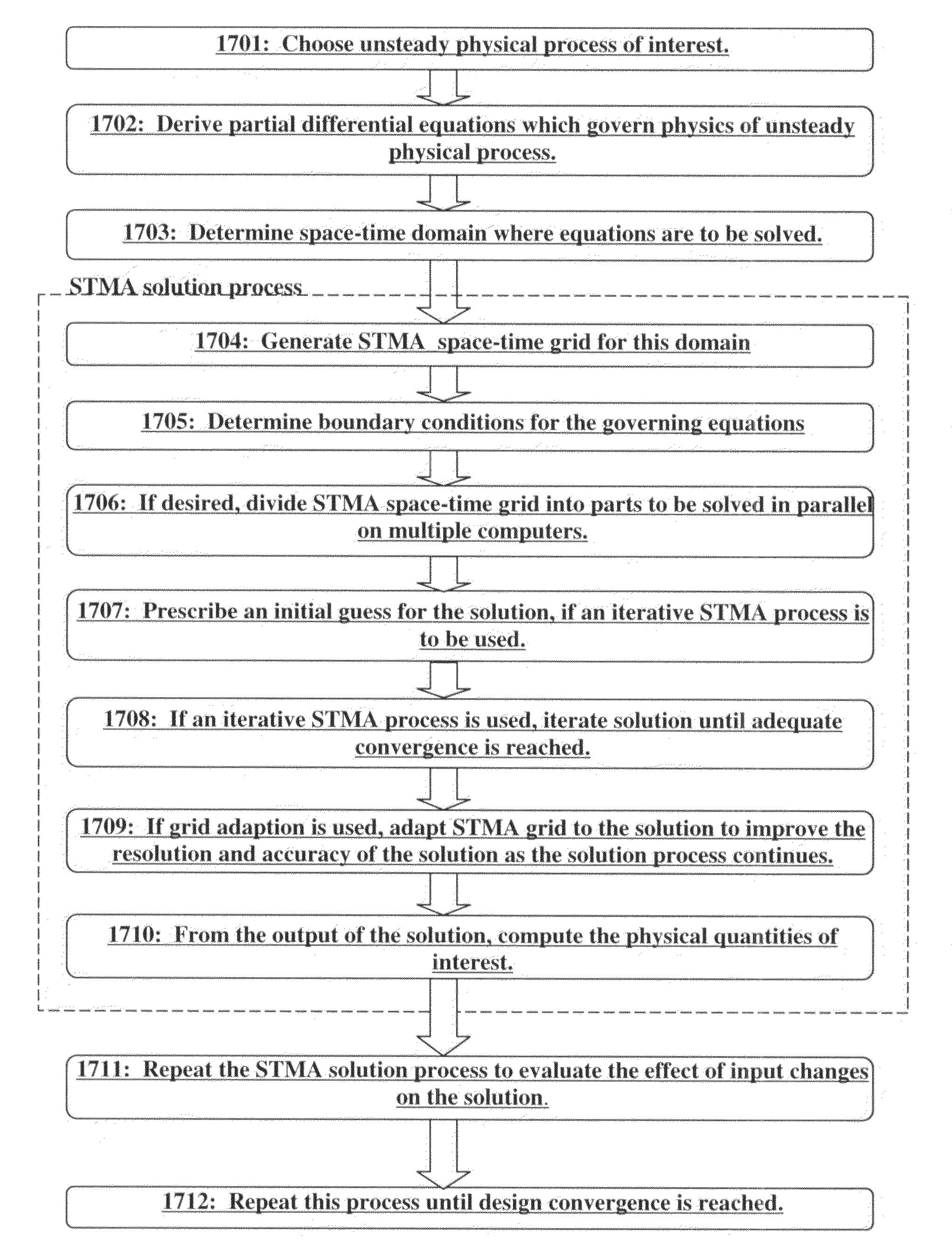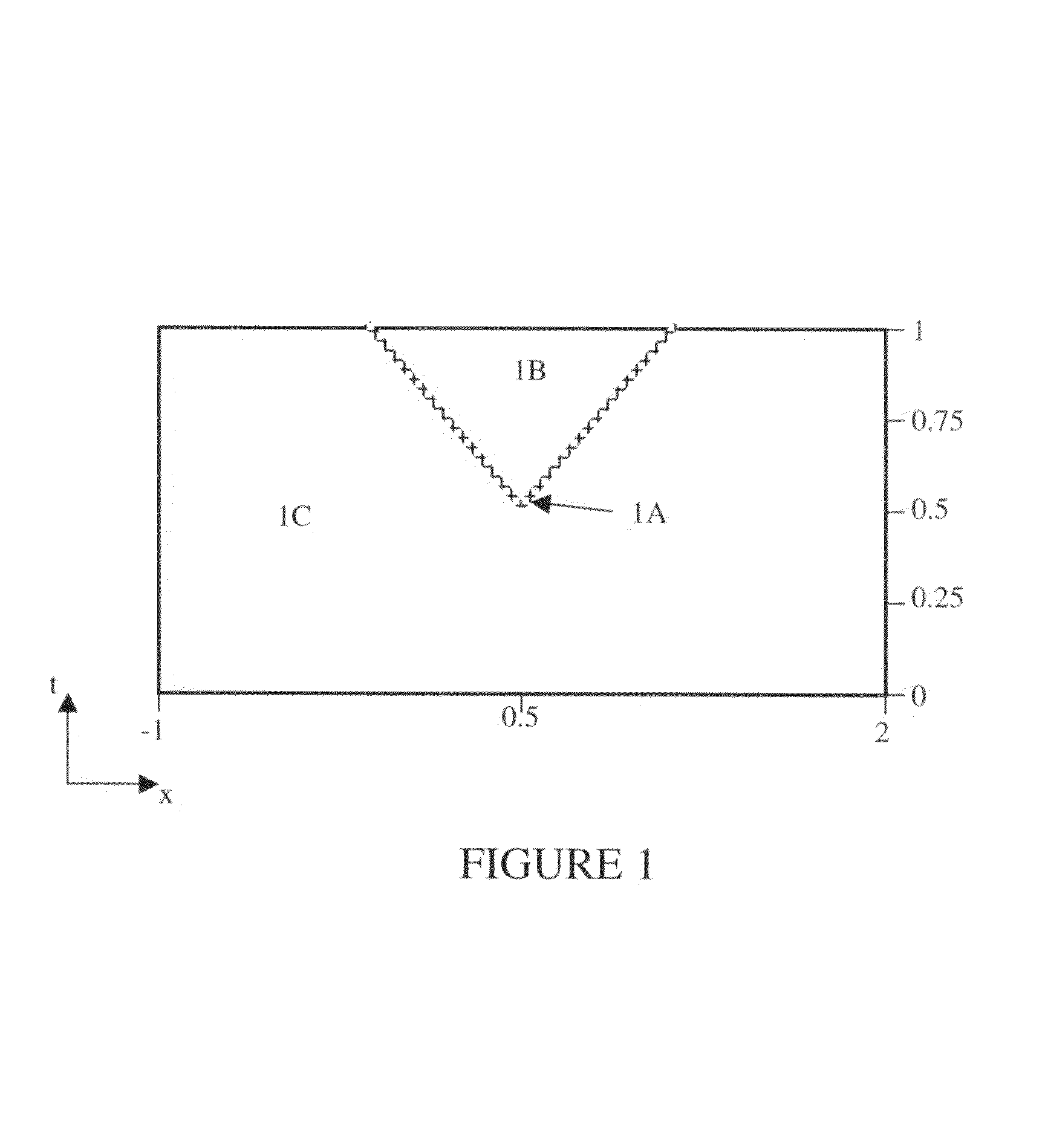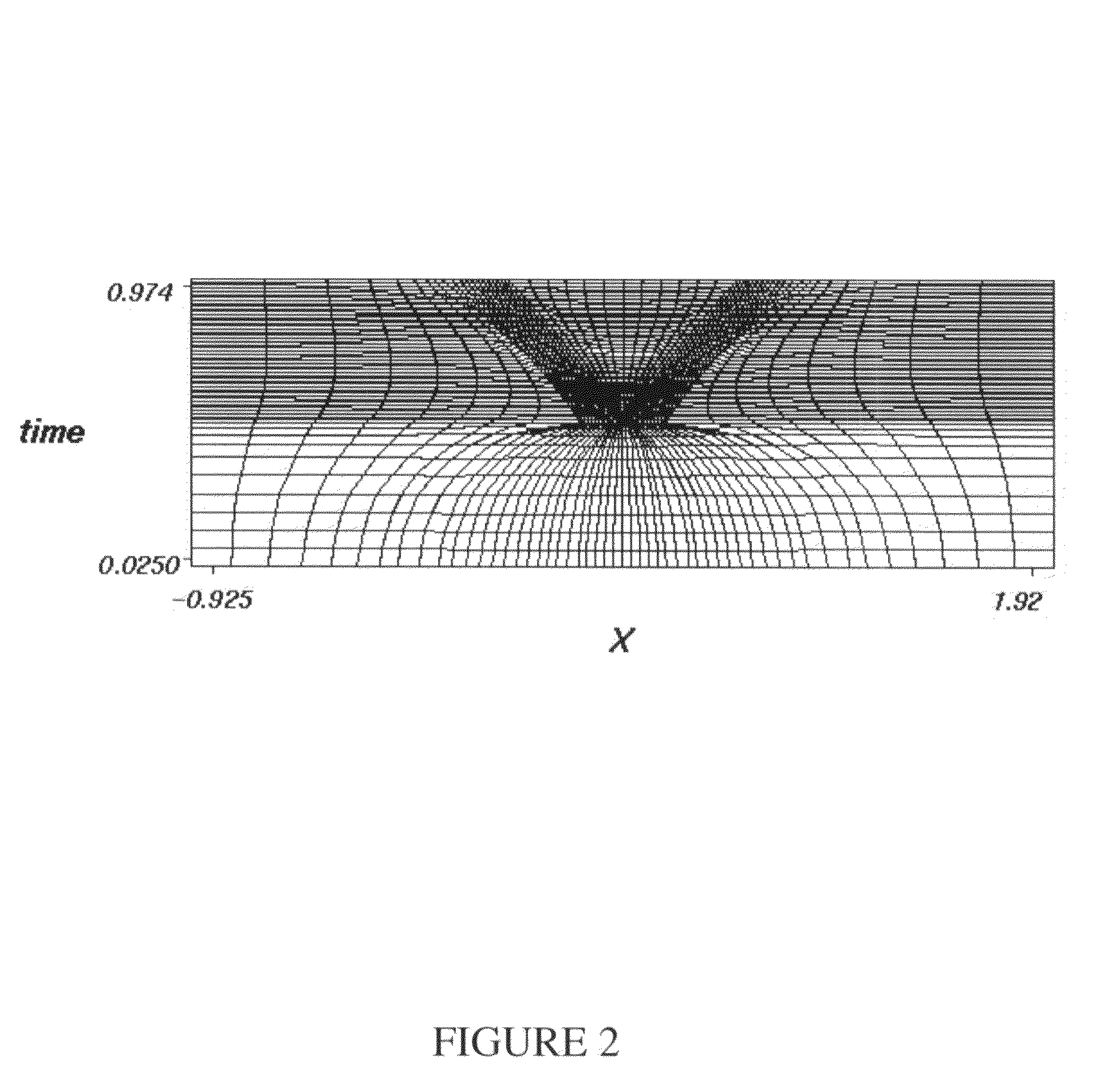Method and system for the efficient calculation of unsteady processes on arbitrary space-time domains
a technology of arbitrary space-time domain and efficient calculation, applied in the direction of analogue processes, cad techniques, instruments, etc., can solve the problems of parallelism in problems, limited speedup of solving problems on parallel computers, and limited linear approaches
- Summary
- Abstract
- Description
- Claims
- Application Information
AI Technical Summary
Benefits of technology
Problems solved by technology
Method used
Image
Examples
Embodiment Construction
[0136]This invention, referred to as the Space-Time Mapping Analysis (STMA) method and / or system, relates to an engineering method and / or system for modeling and / or designing and / or building complex physical processes, components, devices, and phenomena. STMA can be used in a way for modifying and / or improving the design of many different products, components, processes, and devices, for example, each of which is considered a “physical system.” The term “physical system” includes anything and everything that could be physically implemented and / or designed and / or built by human beings or by human tools and machines, while the term “engineering system” may include any method, process, and / or means for designing, modeling, evaluating, implementing, and / or building the physical system. Thus, STMA is provided to be implemented as a part of such an engineering system.
[0137]The STMA system and / or method, using a space-time mapping technique, can be implemented in software on a personal pro...
PUM
 Login to View More
Login to View More Abstract
Description
Claims
Application Information
 Login to View More
Login to View More - R&D
- Intellectual Property
- Life Sciences
- Materials
- Tech Scout
- Unparalleled Data Quality
- Higher Quality Content
- 60% Fewer Hallucinations
Browse by: Latest US Patents, China's latest patents, Technical Efficacy Thesaurus, Application Domain, Technology Topic, Popular Technical Reports.
© 2025 PatSnap. All rights reserved.Legal|Privacy policy|Modern Slavery Act Transparency Statement|Sitemap|About US| Contact US: help@patsnap.com



